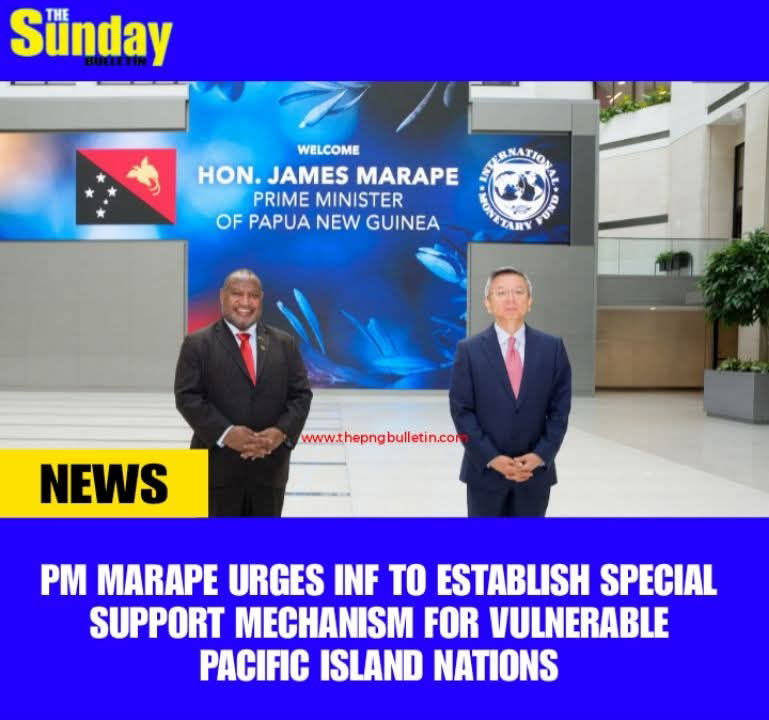Prime Minister James Marape, MP has used his high-level engagement with the International Monetary Fund (IMF) to call for the creation of a tailored support facility for Small Island Developing States (SIDS), especially fellow Pacific Island nations.
Speaking directly to IMF Deputy Managing Director Bo Li and his senior leadership team, Prime Minister Marape strongly advocated for the economic and climate vulnerabilities faced by SIDS to be addressed through targeted concessional financing, grants, and technical assistance.
“Many of our small island neighbours are innocent victims of global events—whether it's the economic fallout from man-made disasters like the Russia-Ukraine war, or natural disasters such as rising sea levels and extreme weather caused by climate change,” Mr Marape said.
“These countries have negligible carbon footprints, yet they bear the brunt of climate change, imported inflation, and external shocks they did not create. Unlike large economies that can absorb global turbulence, these small nations face existential economic risks.”
Mr Marape proposed that the IMF consider establishing a dedicated programme specifically designed for small island states—offering grant-based and soft concessional financial support for economic resilience, food and fuel security, and climate adaptation measures.
“This is not just about economics. It’s about fairness and survival,” Mr Marape said.
“Small island states are being disproportionately punished by problems they did not cause. The global community has a responsibility to ensure they are not left behind.”
He noted that while the Pacific Islands contribute little to global emissions, they possess some of the largest carbon sinks in the form of forests and oceans, yet receive minimal compensation or support for their stewardship.
IMF Deputy Managing Director Bo Li acknowledged Mr Marape’s concerns and noted the importance of the Pacific Islands Forum, which he is expected to attend in Honiara, Solomon Islands, in September 2025.
While no immediate commitments were made, Mr Li confirmed that the IMF is exploring ways to better tailor its support for vulnerable island economies.
Mr Marape emphasised the importance of raising these issues at the highest levels of global leadership, saying, “It is at leadership level that these ideas must be proposed—because that is where decisions that affect our region’s future are ultimately made.”
He concluded by affirming that Papua New Guinea, as the largest economy in the Pacific Islands Forum, would continue to be a voice for regional solidarity and push for structural change in global financing frameworks to reflect the specific needs of Pacific nations.

